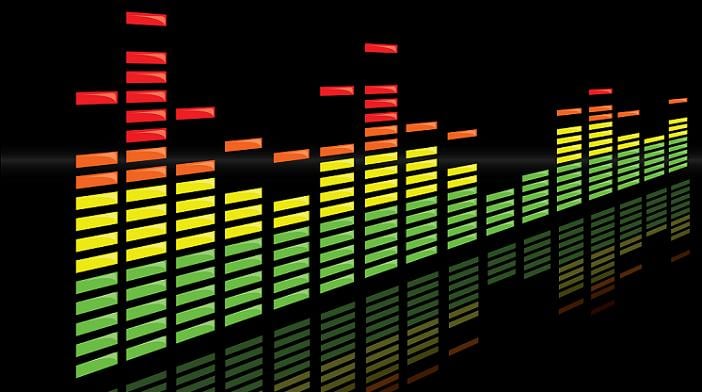 Image via Shutterstock
Image via Shutterstock
You likely know by now that in order to build a sustainable career in music you must have multiple streams of income. With CD sales essentially non-existent and a single Spotify stream earning you fractions of a penny, the bulk of your income is probably not going to be coming from your music itself.
However, not making money directly from your music isn’t a completely foreign concept. Back when labels only recouped mechanical royalties, i.e., CD sales, musicians who were signed rarely saw money from their music sales, but rather made their income from merch, touring, endorsements, etc.
As an independent musician, your career now demands the same. But, luckily for you, technology and a more intimate connection with your audience allows you to create additional streams related to your music that didn’t necessarily exist in past years. One of these is through mindfulness.
These days, fans are investing in a more experiential relationship with the artists they support; rather than purchasing and downloading your music, they're paying for private concerts, exclusive behind-the-scenes access, etc.
Beyond fans, music is also being licensed more than ever for creative content. Not too long ago, musicians prayed for the chance to have their music heard in big commercials and network television. Now, independent artists have opportunities to license/create music for video games, streaming content, apps, video courses, podcasts, and more.
With a little creativity and ingenuity, you can create unchartered, and possibly lucrative, streams of income that can enable you to continue to create the music you love.
Integrating mindfulness into your music (and vice versa)
First, identify how people are using music in their daily lives.
Realize that there is a global trend towards self-care and mindfulness. According to The Global Wellness Summit, the CDC cited meditation as the fastest-growing health trend in America. Between 2012 and 2017, the number of people meditating tripled, and in 2018, Apple reported mental wellness/mindfulness apps were the #1 app trend.
Next, think of your particular audience and how identify ways music adds to their daily experiences. How can your music add value to the lives they’re already living? Rather than having them stop and listen to your song, how can you integrate your song into what they’re already doing?
Your audience is likely similar to who you are so think about how your music helps you on a daily basis. Also think about how you practice (or would like to start to practice) being more mindful in your day.
For example, if your music is more new age or transcendental, creating meditative tracks can become an additional income stream. Creating an experience with your music will often prompt fans to invest in purchasing your music.
If you, yourself, are experienced in meditation you can create a guided experience for them. If you’re not, you can reach out to those who do lead meditation classes or courses and offer to create music to go along with their lessons. This will also work well with yoga and other practices focused on calming the mind.
Marrying your music with a physical activity can also be very successful; again, integrating your music with something your audience is experiencing can be impactful. If your music falls into the house or EDM genre, consider reaching out to instructors (online or at local gyms) to use your music during their spin classes or cardio instruction.
Does your music lean more classical or jazz? Do you create more improvisational work? Those genres have been shown to be effective in improving sleep as well as study habits. Creating and monetizing playlists or bundles to improve study habits and marketing to college students or parents of high-school students who want to improve their grades during testing season (think middle and end of semesters) can be lucrative.
Mindfulness doesn’t have to be quiet
More of the rock or metal persuasion? It’s likely that the aggressive music you create is a great way for you to release stress and express yourself when you’re going through difficult times and it’s no different for your fans. The New York Times even reported how metal has become a tool for various types of meditation.
Additionally, studies have shown that listening to this music can reduce the symptoms associated with cancer treatment. Mindfulness-based music therapy sessions, “reported significant benefits of enhanced attention and decreased negative mood and fatigue in women with breast cancer.”
Music allows people to feel things more deeply and release those feelings. Funneling aggression, pain, frustration into a song can allow them to face and let go of stress and trauma they may be holding onto.
Identify what type of relief your type of music brings and start to brainstorm how that relief can be paired with various mindfulness practices in a fan’s daily life.
Start earning income with mindfulness and your music
As we always say, DIY ≠ Do It Alone. You don’t have to build an entire new income stream yourself. Once you’ve determine how your music can be used in someone’s daily life to improve their well-being, start to research others who are already targeting your audience in that way.
Find local yoga studios or life coaches who create guided video courses or app developers who are creating additional content or podcasters who need more music for their shows (focus on those who use ads/sponsors in their episodes, not those who have yet to monetize their show).
Reach out to educational course creators on Udemy or Teachable or entrepreneurs who focus on helping the student community or wellness/nutrition coaches who target people struggling with physical health issues.
Create opportunities to collaborate
There’s no one way to monetize the partnership. You can license your music to them, create a commission-based situation, or work out an affiliate fee where you receive compensation for each piece of content you help sell, or something else that works for all parties.
The most important thing to keep in mind when turning your music into a tool for mindfulness is to realize that people are investing in experiencing something greater with the help of your music.
[How to Find Awesome Music Collaborators]
Focusing on how to be of service with your music, rather than focusing on how to get more people to focus on you, will open the door to more lucrative opportunities as well as more engagement with your community.
How will YOU be more mindful with your music? Let us know in the comments!
Suzanne Paulinski is a mindset coach and founder of The Rock/Star Advocate. She helps music industry professionals gain confidence and clarity in their goals with a healthy work/life balance. Her book,The Rock/Star Life Planner is now available on Amazon.







